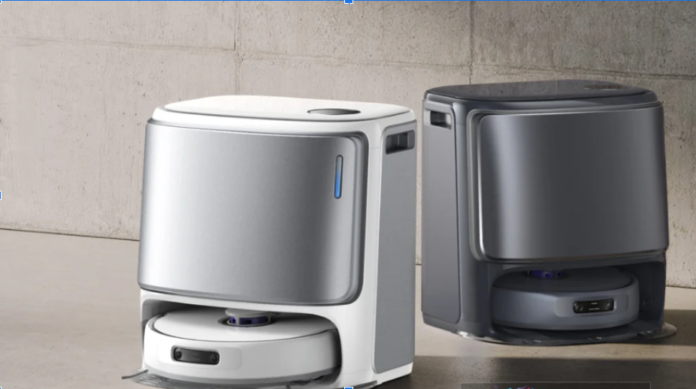The Importance of Sustainable Cleaning
Sustainability is a growing concern, influencing how we approach many aspects of our lives, including home cleaning. Eco-friendly cleaning is about more than just using “green” products; it’s about adopting smarter habits that reduce waste, limit exposure to harmful ingredients, and promote efficiency. This article explores practical strategies for sustainable floor care, focusing on minimizing waste and conserving water, while keeping your home clean and healthy.
Choosing the Right Products
Selecting the right cleaning products is fundamental to sustainable floor care. Many conventional cleaning solutions contain harsh chemicals that can negatively affect indoor air quality and contribute to environmental pollution.
Opt for Certified Cleaning Products
Look for products with certifications such as Safer Choice, which signifies that the formula has been evaluated for environmental impact and safety. These certifications ensure effective cleaning without harmful residues.
Avoid PFAS and Other Harmful Additives
PFAS-free cleaning solutions prevent persistent pollutants from lingering on floors or entering water systems. Choosing PFAS-free products supports a cleaner home and safer environment.
See also: What is financial union venturessilberlingtechcrunch
Utilizing Reusable Cleaning Tools
Switching to reusable and durable cleaning tools is another key step towards sustainable floor care.
Invest in a Reusable Mop System
Reusable mop systems are designed for longevity. Look for options with washable microfiber pads that can be reused repeatedly, reducing waste associated with disposable alternatives. Regular washing keeps these pads effective for multiple cleaning sessions.
Select High-Quality Dusting Pads
Replace single-use dusting wipes with reusable microfiber pads.
Mindful Water Usage
Water conservation is critical in sustainable cleaning. Many people use unnecessary amounts of water when cleaning floors.
Use Concentrated Cleaning Solutions
Concentrated cleaners reduce packaging waste and often require less water. Fewer resources are utilized.
Efficient Mopping Techniques
Employ the spray-and-wipe method by using a damp mop for targeted cleaning. This ensures using only the necessary amount of cleaner and water for effective shining.
Establishing Smart Cleaning Habits
Small, consistent habits can significantly impact sustainability.
Sweep and Dust Regularly
Preventing heavy dirt buildup reduces the need for frequent deep cleaning.
Repurpose Old Cloths for Cleaning
Instead of relying on paper towels, reduce waste by wiping surfaces with old t-shirts or microfiber cloths.
Practical Tips for Diverse Floor Types
Different floor types require specific care to maintain their condition and appearance. Sustainable cleaning practices can be adapted to suit various materials, ensuring effective cleaning without compromising environmental responsibility.
Hardwood Floors
For hardwood floors, avoid excessive water, use pH-neutral cleaners specifically designed for wood, and implement regular sweeping and dusting to minimize abrasive particles.
Tile and Stone Floors
Tile and stone floors can handle more moisture, but it’s still essential to avoid harsh chemicals. Opt for pH-neutral cleaners, use grout brushes for deep cleaning, and consider steam cleaning for sanitizing without chemicals.
Laminate Floors
Laminate floors are sensitive to moisture. Clean with a slightly damp mop and avoid soaking the floor. Use cleaners designed for laminate, and promptly wipe up any spills to prevent swelling or damage.
Vinyl Floors
Vinyl floors are durable but can be damaged by abrasive cleaners. Use pH-neutral cleaners, avoid scouring pads, and opt for regular sweeping and damp mopping.
The Benefits of Proactive Cleaning
Addressing issues proactively saves effort and resources in the long run. Proactive cleaning with simple tools ensures your home remains clean and energy-efficient.
Save Time and Money
Addressing minor issues before they escalate saves time and money. Preventing problems from worsening reduces the need for costly or resource-intensive solutions.
Reduce Environmental Impact
Preventive maintenance minimizes environmental impact by reducing the need for harsh chemicals. It lessens the demand for disposable cleaning products.
Winter Floor Care and Sustainability
Winter presents unique challenges for floor care, with salt, snow, and slush tracked indoors.
Effective Entrance Matting
Strategically placed entrance matting can significantly decrease the dirt entering facilities. Preventing contaminants from reaching the floors reduces the frequency of cleaning.
Sustainable Cleaning Tools
Opt for reusable, high-quality mops and cleaning tools. Avoid single-use solutions, reducing waste.
Proper Training for Cleaning Staff
Proper training on cleaning tasks ensures effective cleaning, minimizing water and chemical usage. Consistency in cleaning benefits both the environment and facility.
Reducing Water Waste in Cleaning Routines
Conserving water is particularly crucial in regions facing water scarcity.
Implement Water-Saving Techniques
Use buckets instead of hoses when mopping and opt for water-efficient cleaning tools. Reusing cleaning water, when appropriate, also cuts down on waste.
Use Environmentally Friendly Products
Choosing concentrated, eco-friendly cleaning products reduces the water needed for dilution.
Embracing Sustainable Cleaning Habits
By implementing environmentally friendly cleaning practices, homeowners can reduce waste, minimize water usage, and promote sustainability. Embracing these practices leads to a cleaner, healthier, and more eco-conscious home. In line with promoting environmental conservation through innovative methods, consider exploring how technology integrates with sustainable cleaning. A robot vacuum offers an efficient and eco-friendly cleaning solution by minimizing water and energy use while automating floor cleaning tasks.

